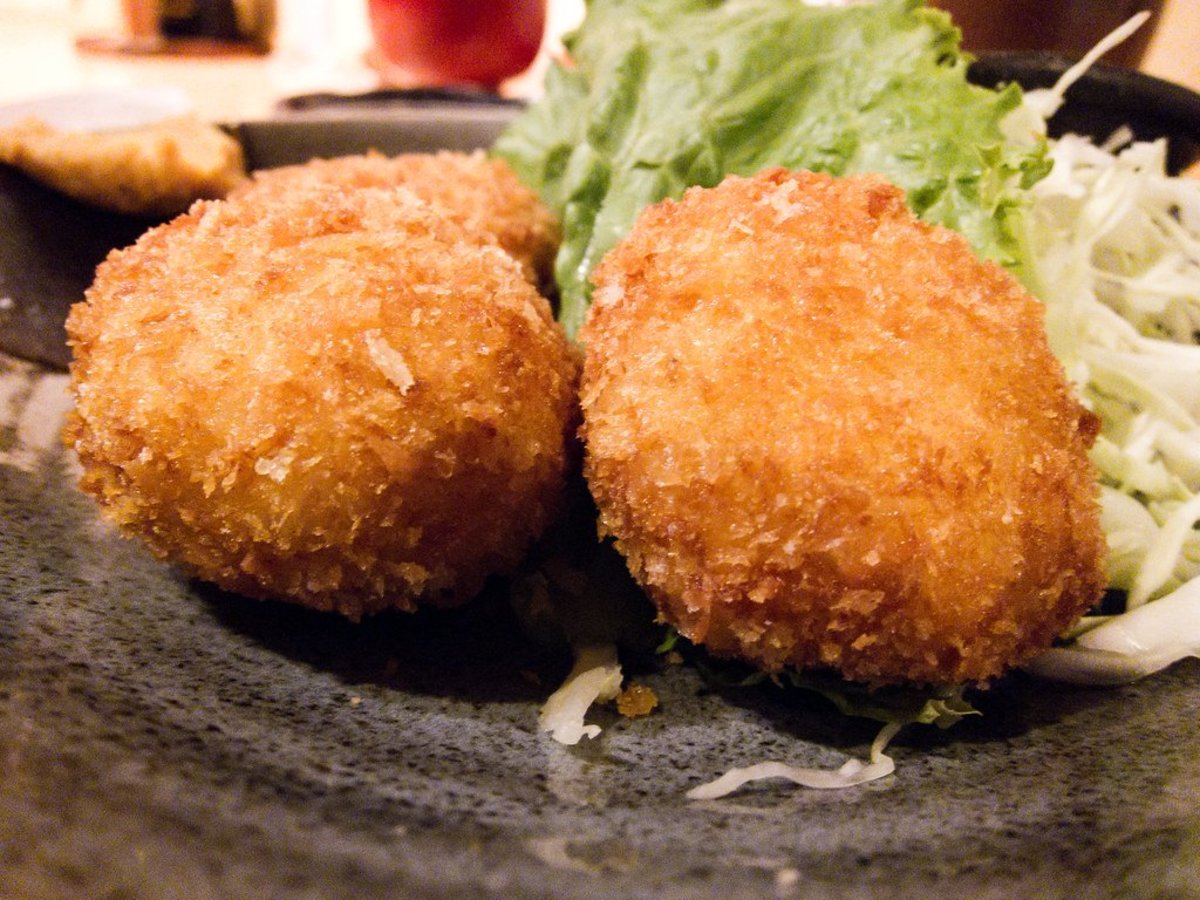

Shape this into a ball, use a finger to make a hole and stuff a piece of cheese inside. It is a good idea to weigh the first scoop of mash as a guide – it should be about 60g. Add one egg, the butter, parmesan, salt and pepper, and mix well. Drain and, once cool enough to handle, peel the spuds and pass them through a potato ricer or mash them. Double cheese potato croquettesġ.2 kg equal-sized potatoes, peeled or unpeeled 3 eggs 25g butter 50g parmesan, grated Salt and black pepper 180g smoked scamorza, provola, mozzarella, fontina or cheddar, cut into 18 small cubes 100g plain flour, for rolling 150g dry breadcrumbs made from crushed Italian-style breakfast rusks, melba toasts or very dry bread Oil (peanut, sunflower, olive), for fryingīoil or pressure-cook the potatoes until tender. You could serve them as a snack or aperitivo, or – in memory of cummerbunds, cake, and a hotel that no longer exists as it did – as a meal with a Greek salad.

Like all fried things, it’s important to serve double cheese and potato croquettes as soon as possible, while the crust is glistening and the cheese inside still soft enough to stretch.

(Although that job is even easier if you put them in a bag and crush them with a rolling pin, and pulsing them in a food processor is easier still.) And, thanks to their brittle nature, crumbs that are easily reducible by hand over a bowl. Not that it matters, because I have butter to hold everything together, and, to be honest, while they make a good breakfast, they make even better crumbs as part of a triple dip for coating slices of aubergine, or today’s double cheese and potato croquettes. There is a local brand in Rome called Gentilini, which are particularly good, but their slogan, friabili, grandi e resistenti (crumbly, big and resistant), feels a contradiction in terms. In Italy, they are called various things, mostly fette biscottate, with slices twice baked and well-loved. I still struggle not to break the rusks as I spread. This is what I remember at the table in Greece: the rusk breaking under my knife, but the butter holding the fragments together like mesh netting in plaster.
#Croquets crack#
However, breakfast rusks, hard and twice-baked as they are, are brittle things and crack under pressure.

As a child, I considered myself good at spreading crackers, having learned from grandma Roddy, who had Ryvita with margarine with her tea from the Teasmade every morning. I remember putting the apricot jam on the thick slices of yellow cake, and butter on the breakfast rusks a noisy scraping, spread to the corners of the hard, rough squares, which were the perfect vehicle for butter. Pretty standard, and perfect for three children aged 11, nine and six, because not only was there cake for breakfast (in what we thought was the best hotel in the world), but most of the rest came in individual tubs, pots, triangles and packets: the magic of the single portion – and my brother, sister and I not having to share. At night, the bar had a choice of set menus, but in the morning, after asking if you wanted coffee (Greek, filter or instant), tea (various), hot chocolate or eggs, the waiters would bring dishes with things on them: slices of cake, bread, breakfast rusks, honey biscuits, thick yoghurt, butter, honey, cream cheese and apricot jam. The waiters wore white jackets and cummerbunds, although in an old-fashioned rather than formal way.
#Croquets windows#
The dining room had more windows than walls, and through most of them you could see the temple on the top of the hill, as well as the beach meeting the sea.


 0 kommentar(er)
0 kommentar(er)
